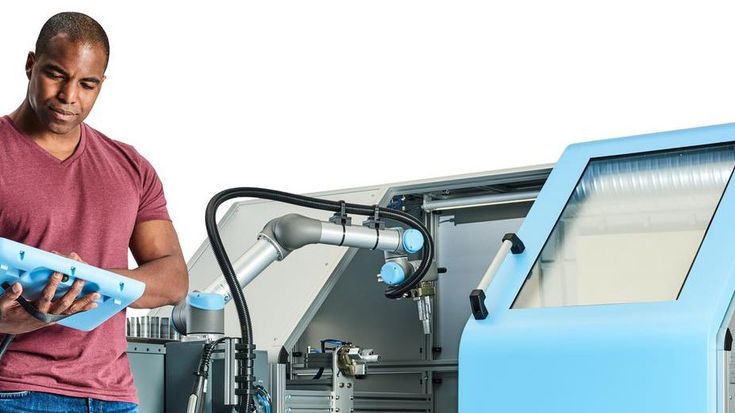Robots have long been romanticized in art and popular culture. From HALL 9000 and the Terminator series where they are seen as a menace to humanity, through to Star Wars or WALL-E where they are benevolent and even heroic, robots can be portrayed both positively and negatively.
Today, however, robots are not just fictional characters. Real robots increasingly populate real factories, warehouses and all sorts of other places of business, where they share the daily tasks with human co-workers. While robots sometimes get good press for increasing productivity, helping smaller companies compete with larger rivals, and even enabling human workers to move from boring repetitive tasks to more interesting work,
stories about them are appearing in all kinds of media with the increasing frequency where they are often suspected – or directly accused – of “stealing” jobs from human workers.
But what exactly is the relationship between robots – in particular, the collaborative robots (or “cobots”) - and human labor? To really understand it and answer the accusations being leveled at robots today, we need to first understand that cobots are designed not to replace human workers, but to work right alongside and assist humans - whereas traditional industrial robots, which have already been used in many industries for 50 years or more, really are designed to replace human workers.
ROBOTS ARE STEALING OUR JOBS!
Recent headlines in the media, such as a recent PwC study suggesting that 4 out of 10 jobs in the U.S. could be taken by “automated bots”, play on the basic fear is that robots are replacing people as the world’s primary workforce and that this will leave us, humans, with no obvious way to earn a living. Such coverage in the media and the response suggests that concern about robots taking jobs is both widespread and pronounced.
Of course, not everyone agrees. Defenders of robot technology argue that every new wave of automation – from steam engines to computers –has led to fears that technology would “take over” and render human workers superfluous but in reality has resulted in net gains in job creation, not job losses, in the long term.
The fact is most jobs require uniquely human skills to perform and recent OECD studies suggest that less than 10% of jobs can be fully automated, thereby limiting the number of jobs robots are likely to “steal” away from human workers. Demand for cobots is growing faster than demand for traditional industrial robots; BIS Research projects that the market for collaborative robots will reach some $2 billion by 2021. So, in the future, we are more likely to see humans and robots working together on the factory floor rather than humans being replaced altogether.



